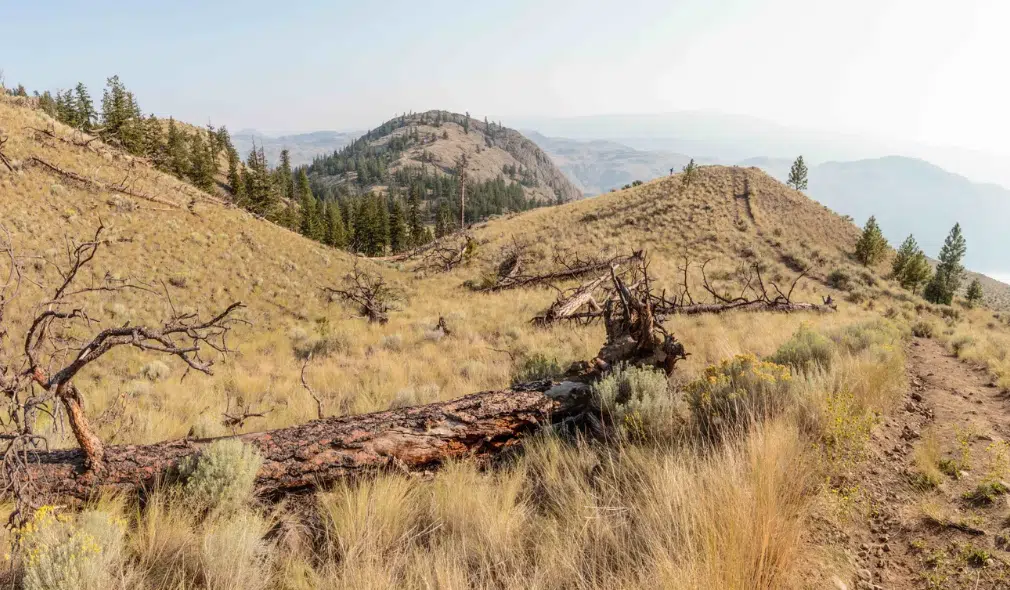
Photo of Kamloops in drought conditions in 2022 (Photo via James Smith/Alamy)
If you thought 2023 was unusually warm and dry in Kamloops, you’d be correct.
Data from Environment Canada has revealed that the last year was the driest and warmest year on record for Kamloops, with records going back to 1897.
Speaking on the NL Noon Report, Meteorologist Brian Proctor says the mean temperature in Kamloops was 10.9 C last year, tying the old record set in 2015.
“The normal mean temperature is 9.3 degrees, so a 1.6 degree anomaly. While that doesn’t sound that astonishing to many people, those records go back to 1897, so we’re looking over 125 years of data to give us those sorts of numbers.”
Proctor also says that Kamloops got 148.6 mm of precipitation in 2023, well below the 277.6 mm that is seen in a normal year.
“153.4 mm was the previous low amount set back in 1979, so a fairly long standing record,” Proctor said. “A very very warm and dry situation for the Thompson Valley.”
“The true story was it was warm and dry over much of the province. Even in some of our South Coastal areas, they were fairly warm like second, third, fourth warmest on the period of record going back over 100 years for many of those stations, Really, the further north and east you moved, the more the magnitude of the anomalies was astounding.”
There’s also this from Matt MacDonald, the lead forecaster at the @BCGovFireInfo.
Looks like 2023 was the warmest and driest on record in #Kamloops with records going back to 1897.https://t.co/OVeHGmasQa
— Victor Mario Kaisar (@supermario_47) January 3, 2024
Proctor says the heat and lack of snow so far this winter is raising concerns that the drought could worsen across the province, leading to another intense fire season this summer.
“That is indicative of the situation we were in last year, so as we came out of the winter with a fairly good snowpack, it was so warm and dry through much of the summer that we entered the fall in a deficit situation,” he said.
“And to this point in time, we’ve had very little [precipitation] except along the Outer Coast and the North Coast of BC to alleviate some of that preexisting drought or moisture deficit that we’re currently facing.”
The BC River Forecast Centre is set to release its first look at the current snowpack levels on Tuesday.














